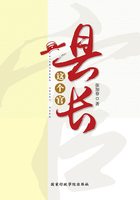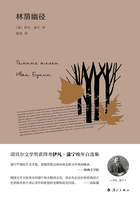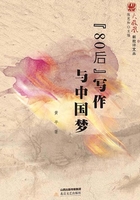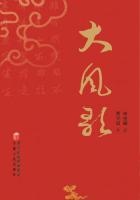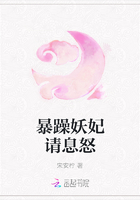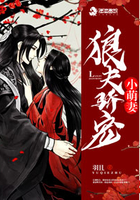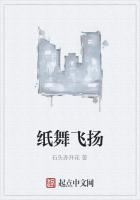Impersonality is an idea astonishing the realm of literary criticism at that time. Eliot declared that “The progress of an artist is a continual self-sacrifice, a continual extinction of personality.” T. S. Eliot, Selected Essays, London: Faber and Faber Limited, 1975, p17. In poems “the poet has, not a ‘personality’ to express, but a particular medium, which is only a medium and not a personality, in which impressions and experiences combine in peculiar and unexpected ways.” ibid p20 The real poet should keep it in mind that “The emotion of art is impersonal” and that “Poetry is not a turning loose of emotion, but an escape from emotion; it is not the expression of personality, but an escape from personality.” T. S. Eliot, Selected Essays, London: Faber and Faber Limited, 1975, p21.
Impersonality is the most outstanding contribution Eliot has made to modern poetry, both in composition and in evaluation of poetry. We will never overestimate the significance of this idea. It is pioneering and subversive. Eliot himself explained this concept in his critical essays in different ways. Besides his objection to personal originality mentioned above, we can find impersonality in his “third voice”—“the voice of the poet when he attempts to create a dramatic character speaking in verse; when he is saying, not what he would say in his own person, but only what he can say within the limits of one imaginary character addressing another imaginary character”. T. S. Eliot, On Poetry and Poets, London: Faber and Faber Limited, 1956, p89. Eliot assumed that there were three voices in poetic drama, the first two voices including “the voice of the poet talking to himself—or to nobody” and “the voice of the poet addressing an audience”. ibid p89.
Although these three voices mingled together in the drama, if the poet speaks in his own voice, he cannot bring a character to life, while the second voice is the essential function of a drama. It is the third voice that discriminates great dramatists from mean ones. Eliot poured praise onto Shakespeare, because when we listen to a play of Shakespeare, we listen not to Shakespeare but to his characters.
Eliot himself is a poet concealed behind the curtain of impersonality. In his poems the reader will never hear his personal voice or sense his personal emotions. However, it does not mean that Eliot denied the art emotion of the poem. He hoped that he could convey the “structural emotion” like that provided by the drama. The “whole effect, the dominant tone , is due to the fact that a number of floating feelings, having an affinity to this emotion by no means superficially evident, have combined with it to give us a new art emotion”. T. S. Eliot, Selected Essays, London: Faber and Faber Limited, 1975, p20. Hence the conclusion from Eliot’s statements about impersonality: in great poetry the poet is “everywhere present, and everywhere hidden”. T. S. Eliot, On Poetry and Poets, London: Faber and Faber Limited, 1956, p102. Eliot himself practiced the principle faithfully in his creation. His poems are not glowing with enthusiasm as that of the Romantic poets, yet they are distinguished from other poetry. We cannot deny that it is impersonality that makes Eliot’s poems especially The Waste Land transcend the personal sentiment and win a universal significance.
Objective Correlative This was put forward in the essay of “Hamlet” by Eliot in 1919 as well. Eliot criticized that Hamlet is “an artistic failure” and Hamlet’s bafflement at the absence of objective equivalent to his feelings is a prolongation of the bafflement of his creator in the face of his artistic problem.” T. S. Eliot, The Secred Wood Essays on Poetry and Criticism, London: Methuen & LTD., 1934, p91, p92. As a result, the character of Hamlet we see is always wandering, because Shakespeare failed to find a proper way to help Hamlet express the emotion as the character should do. In other words, Shakespeare didn’t provide an objective thing for Hamlet’s emotion to be put on. In Eliot’s opinion,The only way to reach impersonality is by finding an objective correlative; it refers a set of objects, a situation, a chain of events which shall be the formula of that particular emotion; such that when the external facts, which must terminate in sensory experience, are given, the emotion is immediately evoked. T. S. Eliot, Selected Essays, London: Faber and Faber Limited, 1975, p145.
Eliot made a further exploration of the objective correlative in another essay “The Metaphysical Poets”. In his eyes the metaphysical poets are the real poets in British poetic tradition for they found proper objective correlatives in their poems so that they could “feel their thought as immediately as the odour of a rose”. The concept of “objective correlative” is in accordance with Eliot’s tradition and impersonality. Eliot propagandized the significance of tradition and impersonality to explore the universal and general nature of the world. There is only one nature for the world. But the one nature wears different appearance, that is every object has the nature of the world hidden in itself. What the poet should do is to present the object which is equivalent to the common feelings or emotions the poet wants to release in the poem in front of the reader so that the reader can be stimulated to sense the real meaning of the poem.

